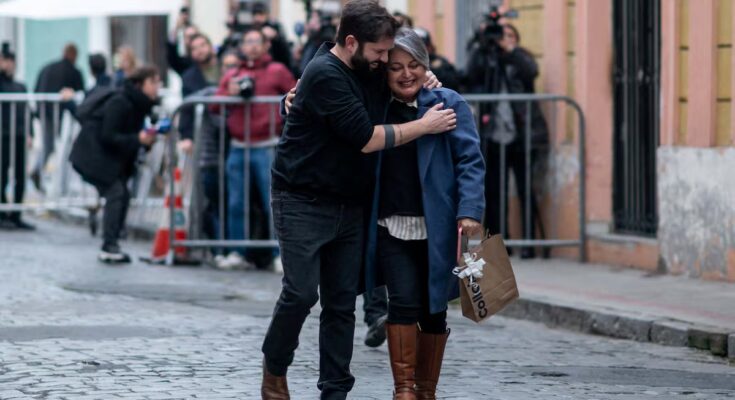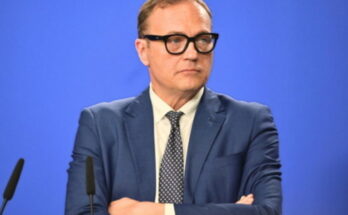One of the questions that the presidential candidate of the Chilean left, Jeannette Jara, had to answer in the aftermath of the elections on Sunday 16th, in which she went to the second round with the republican of the radical and conservative right José Antonio Kast, is whether she would have asked for advice from the leader of the Broad Front Gabriel Boric, who at the end of 2021 also experienced the playoff against Kast: Jara replied: “The president and the government must dedicate themselves to governing”.
Jara, a communist militant, was Boric’s Minister of Labor. In his role, he has advanced three key projects for the government, which he highlights in his campaign today – pension reform, the historic increase in the minimum wage and the 40-hour week law that reduces the working day – but his closeness to the president has complicated it. “Jara has something against him that Boric didn’t have: he comes from a government with a very low approval rating,” said Adolfo Ibáñez University professor Carmen Le Foulon. For example, the Center for Public Studies (CEP) survey, released in October, showed that their rejection was 62%.
For the political journalist and writer Ascanio Cavallo, Jara’s “weak result” – he obtained 26.8% – is also “a judgment on the management of the Boric government”, which “is approaching the end of its four-year term (in March) with poor economic, social and security results”. And he adds that his electoral performance “was lower than the average consensus (30-32%) that President Boric records every week. So Jara could say that his results could have been worse if he had not decidedly distanced himself from the government, and Boric could say that he did so by distancing himself from the government.”
Kast got 23.9%, and strategically exploited the relationship between the candidate and the president for her story: “Jeannette Jara is Gabriel Boric. With a different tone of voice, but it’s the same political project.”
In the final stage of the elections, Boric took a leading role. And that made Jara and his command uncomfortable several times. “It creates noise for us, it distracts us (…) I think this sucks the energy out of communication,” admitted PPD senator Ricardo Lagos Weber, one of the candidate’s spokespersons, in October.
During the election campaign, Boric had several public controversies with Kast, who in turn was much more than critical of him: he said that it was a “failed government”, that the president “has no legacy” and that he was “a bad president”.
When Kast announced that, if he gets to La Moneda, he will cut fiscal spending by $6 billion in 18 months, Boric said: “There are those who say that the government doesn’t matter, because the next day you still have to work. Of course, the next day you have to work, but it doesn’t matter to do it with a government that guarantees rights, that advances better working conditions, that increases the minimum wage, that improves the distribution of wealth, with another that, in the end, cuts rights.” In another speech, he noted: “Some bravely dare, from uptown Santiago, to say that Chile is falling apart.”
But what caused a transversal noise was when Boric presented his latest budget and, during a national network, said: “The proposal to cut 6 billion dollars in expenses that some have collected without saying where they intend to do it is irresponsible, as well as undesirable. Will social benefits be reduced?”
At the time, government spokeswoman Camila Vallejo defended the president’s role and said that in his speeches he engaged in “debates of ideas, not personal attacks.” “He is not only a manager, but he is also a political leader like any president or former president of our country.”
The sociologist and political scientist Alfredo Joignant believes that a victory for Jara – Kast has the support of the other two competing right-wing parties and therefore exceeds 50% – would only happen due to “supernatural phenomena”. But he admits that Jara “did a commendable job: he had problems with the Communist Party and with the Government. President Boric intervened in the electoral campaign as a president had never done before, overshadowing the candidate. With the personality that (Ricardo) Lagos had, he never overshadowed Michelle Bachelet when she was a candidate in the sector”, he said in a special program for the elections of EL PAÍS with Radio DNA.
On Sunday evening, Boric congratulated Jara and Kast in a Moneda spokesperson: “I wish success to both candidates (…) and as Head of State I urge us to have a high-ranking debate, always thinking of the best for Chile.”
Longuiera and the “cultural defeat”
Jara has an uphill second round. With the advance Kast, supported by the three right-wing parties, went to seek consensus in other sectors, including the voters of the populist Franco Parisi, who obtained 19%.
From now on, in view of the second round, it is expected that Boric will no longer have any role in the electoral campaign and will withdraw. And, if such a complex panorama persists for the left, he will have to cede command to Kast’s radical right. And, if everything continues like this, the Chilean pendulum will return to La Moneda, since 20 years have passed since a president handed over power to a successor with the same political character.
For Pablo Longueira, who was one of the iconic figures of the UDI and protagonist of the last 30 years of Chilean politics, Sunday’s “is the worst political and cultural defeat that the Chilean left has ever had”. “There is no government, after democracy (1990), for the continuity of which 75% voted against (…) This is the only occasion in which it gets just over 25%. And, moreover, with one or three right-wing parties, with a very ideological discourse. For me, this is a huge cultural change and this energy will take hold,” he told Tuesday Channel 13.
Longuiera is in favor of the right building a broad coalition, from former candidate Johannes Kaiser’s National Libertarian Party, to Parisi’s PDG, and “trying to create a governance structure that allows governments to be projected.”



